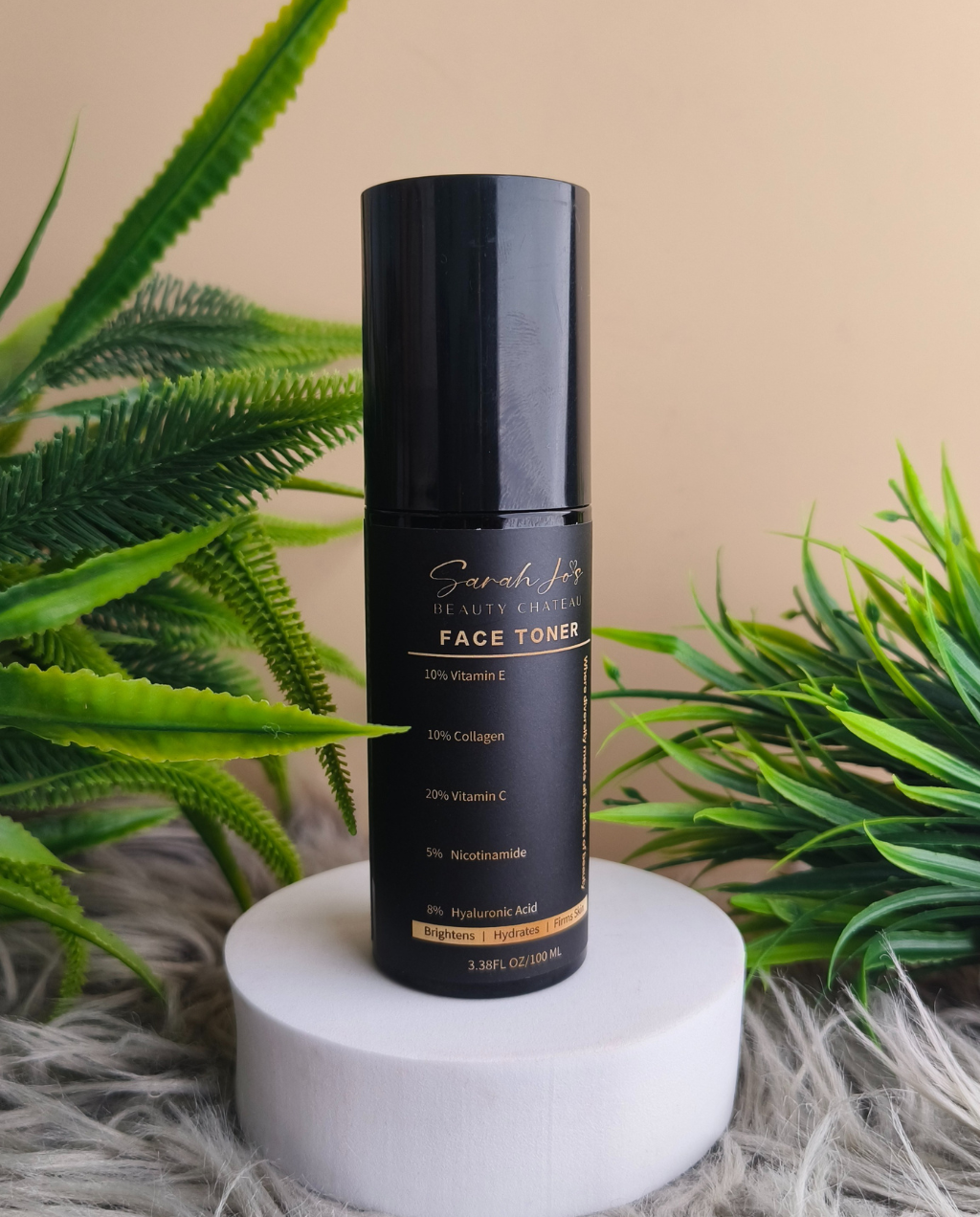As we age, our skin’s needs evolve, and so should our skincare routine. Anti-aging serums have become the cornerstone of effective skincare strategies, offering targeted solutions to combat fine lines, wrinkles, and loss of elasticity. Their lightweight textures, potent formulations, and ability to penetrate deeply into the skin make them indispensable. Alongside these serums, products like a face toner play a vital complementary role in preparing the skin and maximizing serum absorption.
Let’s explore the science behind anti-aging serums, the key ingredients to look for, and how to incorporate them into a routine for glowing, youthful skin.
What Are Serums, and Why Are They So Powerful?
A serum is a concentrated formulation of active ingredients designed to address specific skincare concerns. Unlike moisturizers, which focus on hydrating and protecting the skin’s surface, serums target deeper layers to deliver transformative results.
Why Serums Work So Well for Anti-Aging:
- High Potency: Packed with active ingredients like retinol, peptides, and antioxidants.
- Deep Penetration: Smaller molecules allow serums to reach deeper layers of the skin.
- Lightweight Texture: Makes them suitable for layering without feeling heavy.
Benefits of Using Serums for Anti-Aging:
- Reduction of fine lines and wrinkles.
- Enhanced skin elasticity.
- Improved hydration and skin texture.
- Brightened complexion and reduced pigmentation.
Key Anti-Aging Ingredients in Serums
When choosing an anti-aging serum, look for these powerhouse ingredients:
1. Retinol (Vitamin A):
- Boosts collagen production and accelerates cell turnover.
- Helps reduce the appearance of wrinkles and fine lines.
2. Hyaluronic Acid:
- Attracts and retains moisture, plumping the skin.
- Ideal for combating dryness often associated with aging.
3. Vitamin C:
- Protects against free radicals that cause premature aging.
- Brightens the skin and fades dark spots.
4. Peptides:
- Stimulate collagen and elastin production.
- Strengthen the skin’s structure and improve elasticity.
5. Niacinamide (Vitamin B3):
- Reduces inflammation and improves skin barrier function.
- Minimizes the appearance of pores and fine lines.
6. Antioxidants:
- Includes ingredients like green tea, resveratrol, and coenzyme Q10.
- Neutralize free radicals and slow the aging process.
How Face Toner Enhances Serum Efficacy
Before applying a serum, prepping the skin with a face toner can significantly enhance its effectiveness. A toner removes residual impurities, balances the skin’s pH, and hydrates, creating the perfect canvas for serum application.
Benefits of Using a Face Toner with Serums:
- Optimal pH: Ensures the skin is at its ideal pH for absorbing serums.
- Hydration Boost: Plumps the skin, making it more receptive to active ingredients.
- Removal of Residue: Cleanses any leftover makeup or cleanser residue.
Recommended Toners for Anti-Aging Routines:
- Hydrating Toners: With ingredients like hyaluronic acid or rose water.
- Exfoliating Toners: With mild AHAs or BHAs to enhance absorption (used sparingly).
How to Incorporate Anti-Aging Serums into Your Routine
Step 1: Cleanse
Start with a gentle cleanser to remove dirt, oil, and makeup.
Step 2: Tone
Apply a face toner using a cotton pad or your hands, patting it gently onto your skin.
Step 3: Apply Serum
Dispense 1–2 drops of serum onto your fingertips and gently press it into your skin.
Step 4: Moisturize
Seal in the serum with a moisturizer to lock in hydration and create a protective barrier.
Step 5: Sunscreen (Morning Only)
Apply broad-spectrum sunscreen with SPF 30 or higher to protect against UV damage.
Morning vs. Evening Serum Routine
Morning:
- Focus on Protection: Use serums with antioxidants like Vitamin C to shield the skin from environmental damage.
- Hydration: Opt for hyaluronic acid-based serums to keep the skin plump throughout the day.
Evening:
- Repair and Renew: Use retinol or peptide serums to boost collagen production and cell turnover while you sleep.
Tips for Maximizing Serum Results
- Patch Test: Always patch-test new serums to avoid irritation.
- Layer Correctly: Apply serums after cleansing and toning but before moisturizing.
- Start Slowly: Introduce potent ingredients like retinol gradually to prevent sensitivity.
- Store Properly: Keep serums in a cool, dark place to maintain their efficacy.
- Consistency Is Key: Use serums regularly to see long-term benefits.
DIY Face Toner to Complement Your Serum
Rose Water and Glycerin Toner
- Ingredients: 1/2 cup rose water, 1 teaspoon glycerin.
- Instructions: Mix and store in a spray bottle. Use after cleansing to hydrate and refresh the skin.
Green Tea and Aloe Vera Toner
- Ingredients: 1/2 cup brewed green tea, 1 tablespoon aloe vera gel.
- Instructions: Combine, store in a bottle, and apply with a cotton pad.
Common Myths About Anti-Aging Serums
Myth 1: Serums Are Only for Mature Skin
Serums are beneficial for all ages. Starting early with hydration and antioxidant serums can prevent premature aging.
Myth 2: All Serums Work the Same Way
Different serums target specific concerns. It’s essential to choose a formulation suited to your skin’s needs.
Myth 3: More Is Better
A pea-sized amount of serum is sufficient. Overuse can lead to irritation.
Lifestyle Habits to Complement Your Anti-Aging Routine
- Stay Hydrated: Drink plenty of water to maintain skin elasticity.
- Eat Antioxidant-Rich Foods: Include berries, nuts, and green vegetables in your diet.
- Get Enough Sleep: Rest is crucial for cell repair and regeneration.
- Avoid Smoking: Smoking accelerates skin aging.
- Manage Stress: Practice mindfulness or yoga to reduce stress-induced skin issues.



